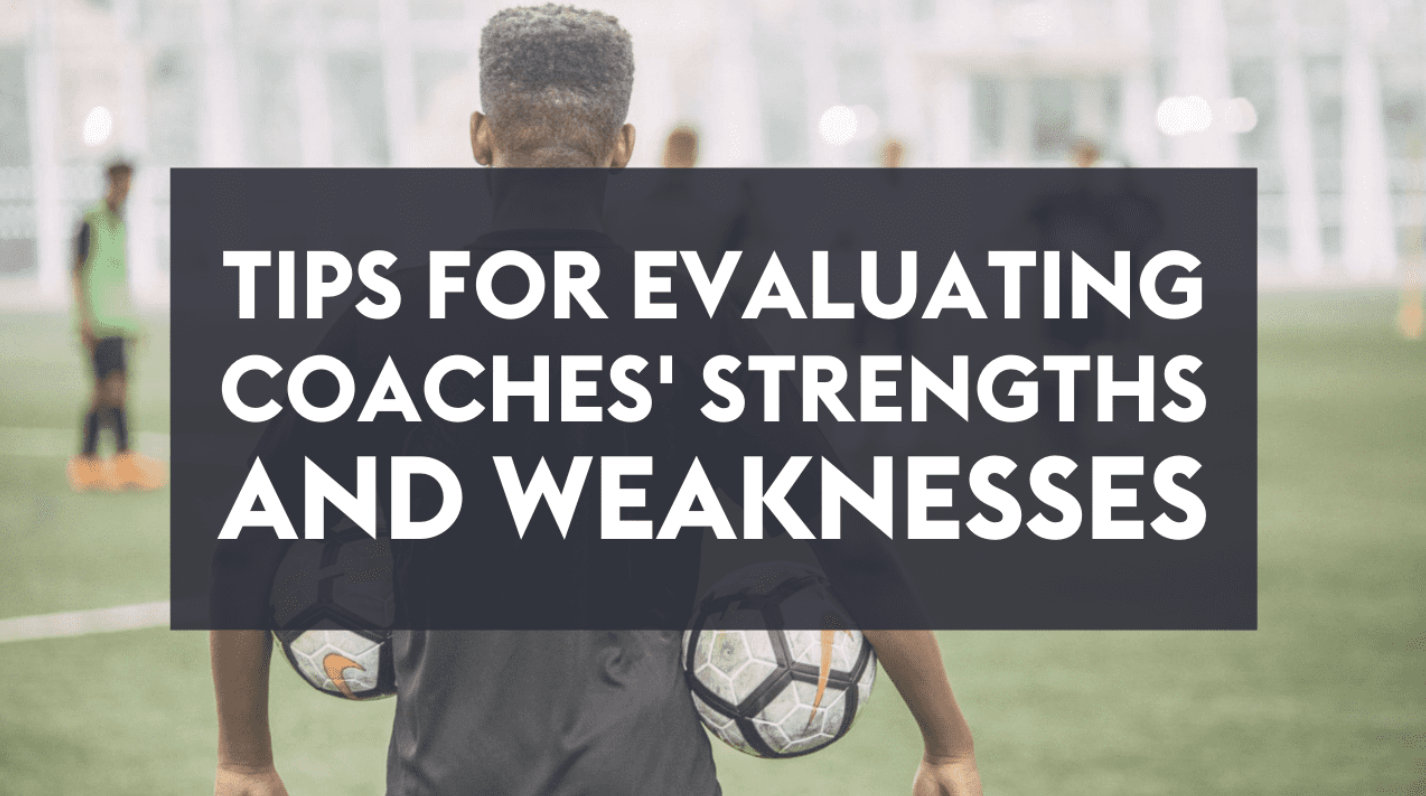Even the best-intentioned DOCs can make mistakes when evaluating the performance of their coaches. In this article, we consider common errors and share tips on how you can evaluate the coaches at your club.
A vital aspect of the Director of Coaching (DOC) job role is to assess and evaluate the competency of soccer coaches. Understanding their strengths and weakness can help to:
- Align their knowledge and strengths to the correct age group
- Ensure they are given relevant training and support
- Create tailored development plans
Common pitfalls in evaluating coaches
It’s important for DOCs to keep in mind these common errors when evaluating their coaches:
Fear of damaging relationships
However experienced you are as a DOC, it's all too easy to give an inflated evaluation of performance in order to avoid conflict or difficult conversations.
Taking the path of least resistance might seem like the best way to keep your team on-side, but it's important to remember that coaches want to improve. By steering clear of constructive criticism, you're ultimately hampering their ability to develop.
Focusing on the coach rather than their performance
Inevitably, you'll find it easier to speak to - and get on with - some coaches than others. But likeability shouldn't be a factor in an evaluation. Take personality traits out of the equation - unless those traits are directly relevant to the role - and focus solely on performance.
Lack of performance-based knowledge
Without specific knowledge of a coach's day-to-day role, it's impossible to conduct a realistic and useful evaluation. As DOC, you may have may have a lot of coaches on your team, which can make it extremely challenging to get a hands-on view of their performance.
Methods of evaluation
Effectively evaluating the strengths and weaknesses of your coaching staff shouldn't be seen as a headache or an overwhelming challenge. It simply requires a consistent approach and sufficient preparation.
Here are some methods to consider when planning your next round of evaluations:
Conduct dedicated performance reviews
As with any people management role, a DOC needs formalised one-on-one time with their team members to discuss new approaches, overcome grievances, and to generally maintain a positive working relationship.
However, a performance evaluation shouldn't be treated as part of a regular recurring meeting. Instead, it should be planned separately, with nothing else on the agenda beyond the evaluation. How can you expect your coaches to take the process seriously - and prepare accordingly - if you don't schedule a dedicated review?
When booking a performance review, be sure to give the coach enough time to get ready for it, taking into account other demands on their time. Again, this will demonstrate the importance that you place on their evaluation and helping them to develop. You may also wish to follow up your evaluation with a second session to agree on updated performance objectives, if necessary.
Provide coaches with a self-evaluation form
Asking for a coach's honest assessment of their own performance provides a useful basis for an evaluation. Give them a set list of criteria against which to self-evaluate.
Use the self-evaluation as a conversational framework around which you can base your own appraisal. Don't be afraid to disagree with any of their assessments, as long as you offer constructive feedback while doing so.
Gain feedback from players and other coaches
Given the many constraints on your time, it can be challenging to acquire sufficient hands-on knowledge of an individual coach's strengths and weaknesses. Peer reviews can help to overcome this. Ask other coaches who work closely with them to provide their own feedback; you may also wish to reach out to the players they coach.
It's fine for you to know the identities of those conducting the reviews - indeed, you should know them, as this gives you an opportunity to challenge or ask for further details on specific feedback - but they should be kept anonymous from the coach you're evaluating.
Don't overdo it - four to five reviews should be sufficient to support your evaluation without becoming overwhelming. Give them structured review forms and urge them to supplement their statements with real-world examples.
Assess player development and performances on the pitch
The ultimate measure of a coach's performance lies in the development of their players. How are they progressing against the measures outlined in your season plan? Are they developing in the right areas, and at the right pace? Do they show clear signs of playing within the overarching sporting philosophy of your club or association?
The only way to answer these questions is by taking the time to watch them in action over a prolonged period. Importantly, you should focus on sustained development rather than one-off results, whether positive or negative. The objective is player development, not success or failure in a specific game, so avoid jumping to conclusions off the back of two or three matches.
Another way to track certain players progress is through the use of TopTekkers and the Individual Development Plans coaches can set through the app. DOCs can have direct access to each of their coaches teams and can visually see how their respective players are developing over time.
Maintain a log of 'critical incidents'
One surefire way to ensure that your evaluation remains rooted in the real world, rather than becoming an unfocused series of unsupported opinions, is to keep a log of so-called 'critical incidents' throughout the review period. These incidents should be examples of positive or negative behaviours and actions, which can then be used as a basis for discussion during the evaluation.
It's vital that you provide clear and constructive feedback as part of this process. Overly criticising a coach for an isolated incident doesn't make for an effective evaluation, and is likely to damage your working relationship. Likewise, avoid simply patting a coach on the back for a job well done. Ensure that every incident you discuss is accompanied by a learning objective - something that the coach can work on when they're back on the training field.
Get content like this and more with a Premium subscription!
- Our LMA Masterclass series featuring sessions from David Moyes, Rene Meulensteen, Alan Irvine, Steve McClaren, and more
- Access to 100s of other exclusive sessions
- Full access to our session creation and season-planning tools
- The same coaching content used by the Professional Footballers' Association
- Coaching Focus Web Series (Seasons 1, 2 & 3)
For the equivalent of just £5 ($7) a month when you pay annually, sign up and start taking advantage of all that The Coaching Manual has to offer today!


